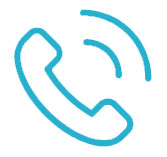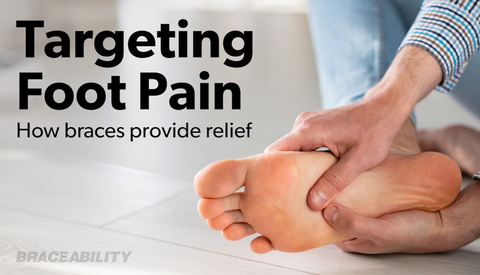10 Surprising Things You Aren’t Told About After Pregnancy
Pregnancy is such an exciting experience! If this is your first time and you think you’ve read every pregnancy book, article and blog post out there, you may be surprised to know that there are a few things that often go without being mentioned. The arguably most interesting and crazy thing about pregnancy is how it can differ so greatly from woman to woman. In order to be as prepared as possible, it is best to inform yourself with all of the information, both bad and good.
The Top 10 Postpartum Secrets You Aren't Told:
-
Your Emotions May Get The Best of You For Awhile
Yes, you may be thinking “well duh!”, but there is a lot more to it than just going through 9 months of being pregnant and whatever other pain and soreness you may be experiencing after going through labor. It’s likely your emotions will go slightly crazy around 2 to 3 days after giving birth. Postnatal depression, also known as the baby blues, is actually extremely common.
While the day your baby is born will be among the happiest days of life, it is also completely normal to go through emotional highs and lows in the first days or weeks following giving birth. Hormonal changes, postpartum soreness, lack of sleep, newborn duties, the list of mood swing triggers goes on and on. Make sure you give yourself time to adjust to your new normal, get help from family and friends, and rest whenever you can! If you continue to feel down for more than two weeks, or feel that your mood swings are out of control, seek help and talk to your partner, friend or seek professional help as needed.

-
Be Ready For Some Serious Night Sweats
Night sweats in the days and weeks following giving birth are a common, yet rarely talked about postpartum symptom. Sweating through the night can be uncomfortable or annoying, so let’s get to the bottom of it. Night sweats can be caused by a variety of things such as the side effects of medication, or changing hormones. It’s likely you’re experiencing excessive sweating through the night as your body works on flushing out extra water weight.
Postpartum night sweats are only temporary, but in the meantime there are a few things you can do to keep them under control.
- Stay hydrated
- Keep your room cool
- Cover your sheets with a towel
- Try lighter pajamas
- Use talc-free powder to prevent skin rashes
If you believe your night sweats are unusually heavy, are accompanied by a fever, or have lasted a long time, talk to your doctor or medical professional.
-
You’re Probably Going to Pee Your Pants
Giving birth is going to take a toll on your body, there is no doubt about that. Although it can be an embarrassing topic to discuss, it’s completely normal for a new mother to experience bladder weakness leading to urine leakage. If you accidentally leak urine when you laugh, sneeze, cough or exercise you’re likely experiencing what is known as stress incontinence. This occurs when urine leaks out with sudden pressure on the bladder and urethra, causing the sphincter muscles to open briefly.
You’re more likely to experience this after giving birth if you:
- Have bladder problems during pregnancy
- Gave birth to your first baby
- Had a long and, or difficult delivery
Most women who leak urine after childbirth find that it goes away in the first few weeks, since the stretched muscles and tissues recover. You can help prevent leakage by practicing pelvic floor exercises, and making sure you completely empty your bladder after using the toilet.
-
Breastfeeding May Not Come Naturally
Ah, breastfeeding. The thing you have heard will just come to you as a new motherly instinct. Don’t let any stereotypical motherly information fool you, this won’t be the case for every new mother. If you choose to breastfeed your baby, it will likely take some work before things go smoothly, even if you have done your research. You and your newborn will need to work together in order to find the perfect latch, which can be frustrating and painful at times. It’s important to know that you are not an unfit mother due to this, and it is actually a very common issue for many new mothers. The best way to prevent pain and breastfeeding problems is to seek help from a lactation consultant, or other experts who can ensure your baby is latched on correctly.

-
The Post-Baby Belly
You’ve been pregnant for the last 9 months, and while you may have assumed that you were finally going to say goodbye to that belly after giving birth, that’s not entirely true. That’s right, you will still have a baby belly, even after your baby is born. Things won’t instantly go back to normal due to your uterus, skin, and abdominal muscles all being entirely stretched out over the past nine months.
So, when can you expect to start seeing changes? It will likely take weeks, if not longer for your stomach area to shrink back to a more normal state after giving birth. This could be even more noticeable with a longer healing period if you had a C-section due to the swelling in the abdomen.
-
Painful Postpartum Pelvic Cramps
Unfortunately, the painful contractions you experience can last well after giving birth. Similar to contractions, or bad menstrual cramping, you’ll likely experience this pain in your pelvic area and lower back. Postpartum cramping is completely normal, as your uterus contracts to shrink back down to its original size. While it contracts, your body is also working to compress blood vessels in the uterus to prevent too much bleeding.
The good news is that most of the time these pesky cramps you’re experiencing after giving birth aren’t going to last long. In fact, the most noticeable contractions will subside within a week. To help with the pain, try wearing a supportive pelvic brace, or the use of a hot / cold pack.
If you are feeling symptoms such as pressure or fullness in the vulvar area, along with swelling and discomfort, you may be experiencing vulvar varicosities, another common condition associated with pregnancy.
-
What The Heck is a Padsicle? - And Why You’ll Want One
Before we get into what exactly a padsicle is, it’s important you first understand the goofy name. The name padsicle originated from a mixture of the word pad and popsicle. It’s likely you haven’t heard this term often, as it isn’t a product you’re able to buy in stores, but rather a DIY project. Basically, a padsicle is a sanitary napkin that is chilled in the freezer and then placed in your underwear to provide relief and promote healing after your vaginal delivery.
These frozen pads are known to be a lifesaver for your afterbirth healing process. Not only will they work to control pain, but it will also reduce swelling, discomfort with hemorrhoids and vaginal stitches. The best part is that you can easily make them ahead of time, on your own!
-
Falling Organs?!
Pelvic organ prolapse is more common for women in postpartum than you would think. A prolapse happens when the pelvic floor muscles and tissues weaken or become damaged and can no longer support the pelvic organs. This lack of support can cause one or more of the pelvic organs to drop or press into or out of the vagina.
One of the most common types of prolapse women can experience is a prolapsed uterus. Which occurs when the uterus drops into or out of the vagina. This can be an extremely painful, uncomfortable condition to deal with. In order to keep up with your daily tasks, try a pelvic prolapse belt, which will help provide the extra support you need while alleviating pressure and swelling you may be experiencing.
-
Chills. Literal Chills.
Another postpartum discomfort that may take you by surprise are the intense chills some new mothers may experience after giving birth. Postpartum chills are not fully understood, but doctors believe that they are most likely caused by fluid or heat loss and hormonal changes after you give birth. The intense chills usually occur within a few hours after you have given birth to your baby, whether the delivery was through a vaginal birth or a C-section. It is unlikely, but there are some rare cases where the chills may occur towards the end of your labor.
-
Mom Shame is Real
One of the most important things to remember is that not every mother is going to do absolutely everything with their newborn baby the same way. The best thing you can do as a new soon-to-be mother is to listen to the advice of other mothers, but at the end of the day, do what you feel is best for you and your baby. Feeling ashamed of doing something a certain way that not all mothers do is completely normal, and even if they aren’t showing it, most new mothers feel exactly the same way.
Postnatal Symptom Takeaways
Not everything about pregnancy and postpartum is rainbows and sunshine, but that is perfectly normal. The most that you can do is educate yourself and do the best you can to prepare yourself for what is to come after you bring your bundle of joy into the world.













